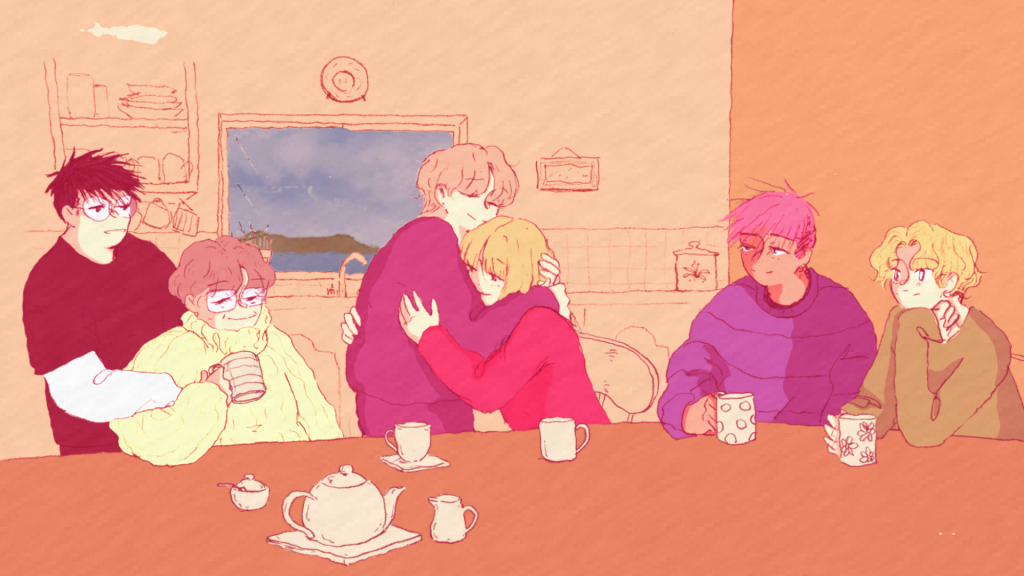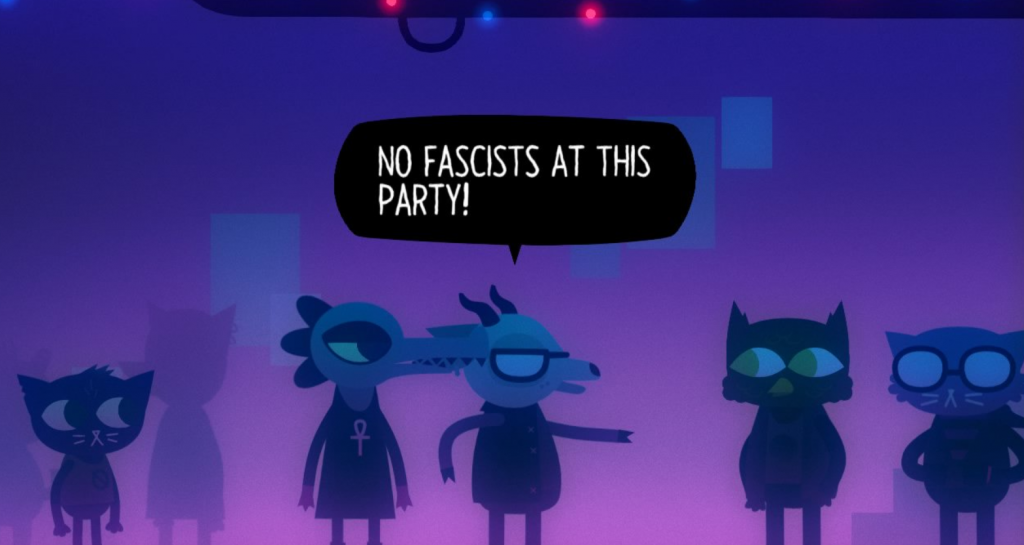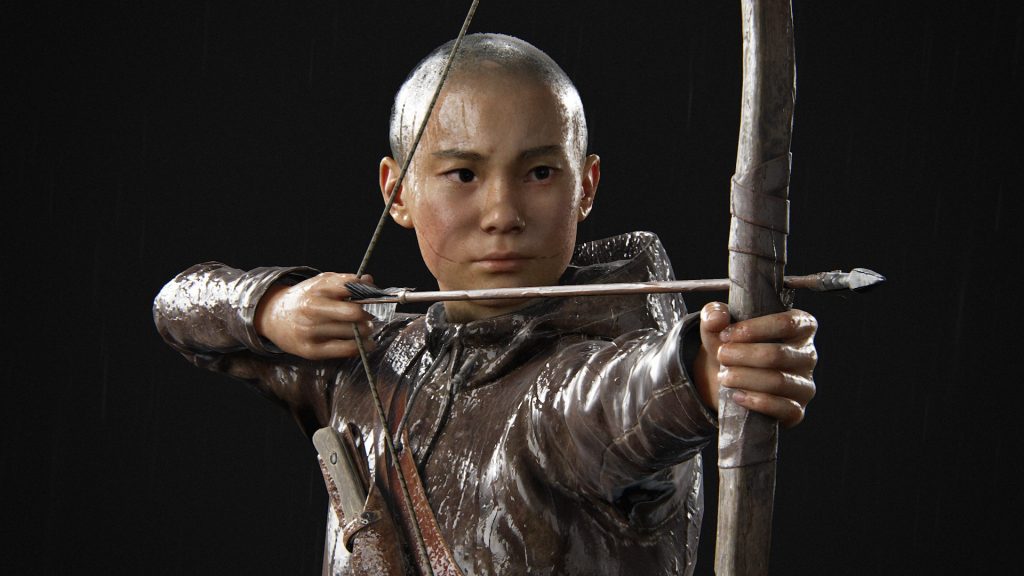
We Need More Stories of Trans Happiness

The Last of Us 2 has a trans character in it. His name is Lev, and he’s from a fanatical tribe called the Seraphites, one of the antagonising forces in the game. Lev’s even voiced by a trans person, Ian Alexander, who identifies as trans masculine. That’s pretty great so far. Where it errs on the side of disappointment is that Lev’s story is one filled with tragedy. That isn’t unrealistic; tragedy can be found in the lives of almost every trans person, myself included. The problem is that suffering isn’t all we are.
I understand that The Last of Us 2 is part of a series about suffering. What the purpose of that suffering is, however necessary it may be, or whether you think the games industry at-large has conflated more meaningful and mature storytelling with more death and violence, the fact of the matter is if you play The Last of Us 2, there’s going to be dying. There’s going to be pain. There’s going to be loss. It’s expected. I’m not necessarily condemning the story that Naughty Dog has told with Lev, either. While I myself am a trans woman, Lev is a trans man, and I don’t want to make any claims about an experience I haven’t had. Rather, I think the latest prevalent trans character in a video game that everyone knows about being one who goes through trauma after trauma with very little joy in-between is just part of a larger problem the game industry has.
In fairness, it isn’t just this industry. Films, books, TV, they all have this problem too. And it isn’t the whole industry. There are countless independent developers out there, many of whom are trans themselves, who are making meaningful and mature experiences featuring or focusing on trans lives where there is joy, and there is happiness. There’s also suffering, yes, but often, it’s suffering dished out in the same quantity as it is with cisgender characters.
That’s the biggest issue that I have with the Triple-A scene. So many of the stories about us in bigger games often put our suffering before us in the order of priority. The violence and the bigotry inflicted on us is usually a bigger character than we are. With Cyberpunk 2077, the first instance we saw of in-universe trans people was on a poster objectifying our bodies. In Watch Dogs 2, there’s a city councillor who is a trans woman, but we only ever interact with her to get sent on a quest to take care of the cult who leaked videos of her surgeries. And, uh… well honestly, that’s all I can think of right now.

Those indie games, though? Well, there’s Hardcoded, an adult narrative-focused game featuring almost entirely trans women in the main cast. There’s Jackie in Night in the Woods, a vehemently anti-fascist goat who was in a one-woman band called “Trans World Order Give Them Hell.” There’s Celeste, where the main protagonist’s transness isn’t even that big a deal, merely confirmed by a little flag in a pot on their desk. What do these three games share, besides featuring trans women? Well, their transness isn’t their entire character, and their suffering isn’t the center of the story.
Hardcoded is, in fairness, a game made by trans women for trans women, but there’s depth (behave) to its characters. Throughout the game, we learn about their passions, their worries, what they believe in. They’re people. NitW’s Jackie is simply a good character who happens to be trans, a fact that wasn’t actually confirmed until a later update brought in that fun fact about her former music career. The main protagonist of Celeste? Being trans has no bearing on their character, it just happens to be the case. It’s not overblown, there isn’t anything drawing an unwarranted and invasive amount of attention to it. It just is.
There’s a balance to it, though. While trans representation in games shouldn’t all be horrible misery, searing heartbreak, and terrible violence, it equally shouldn’t all be total happiness, universal acceptance, and nothing bad at all. It’s all about authenticity and nuance. But the degree of authenticity and nuance also largely depends on the kind of game you’re making. If you’re making a low-pressure, entertainment-focused party game, then dedicating half of its runtime to explaining all of the nuanced aspects of the trans experience because one of the playable characters uses they/them pronouns is going a bit overboard.
Ultimately, the best people to make these judgement calls are, well, us. Trans people. There’s only so much understanding someone who is cisgender can have about the trans experience. How we think, talk, feel, behave, and interact with the world around us is something that we know best, and there are elements of that which you might not even be able to comprehend without living in a society inherently at odds with you. That’s why we see more and better trans representation in indie games than we do in the Triple-A sphere; a lot of the games which contain it are made by or have the involvement of trans people in the development process.

When we do see good trans representation in bigger games, it’s usually because there are trans people working in the studios making them, or because they’re in consulting roles. But even then, it isn’t always perfect. Consultants aren’t always hired, trans people aren’t always working at these studios. Sometimes they are but because of company culture, feel too scared to speak up. And short of sweeping regulations mandating proper consultation whenever any marginalised group is represented in a game (which would be difficult to enforce), there isn’t really a lot we can do to normalise that.
We can sign petitions, we can tweet our thoughts, we can apply for jobs at game studios, but at the end of the day, us trans folks are a minority. We’re a minority with largely increasing support from others, but we’re still a relatively small group in the global population. We’re not a big money-making demographic, so there isn’t really an impetus to market towards us in all these big flagship titles, outside of individual developers’ own motivations. Frankly, we’re used more as a badge of honour for games to proudly wear, declaring their inclusivity and progressiveness. That’s why there’s a lot of dodgy representation. It isn’t usually for us, it’s for them.
Where does that leave us? Where do we as trans people go to in order to see ourselves in the games that we play? Do we try to change the Triple-A culture from the inside? Or do we decide that big-budget representation doesn’t really matter to us, and instead champion the portrayals we see in indie games, made for us, by us, and alongside us? Maybe the answer is a bit of both. I’m not really sure. What I do know is that there are far too much trans suffering in big games, and plenty of trans happiness in the smaller ones.






